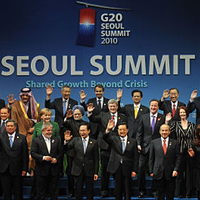Accepting the Nobel Peace Prize in Oslo in December 2009, President Barack Obama expressed his concern that the existing global "architecture is buckling under the weight of new threats."
Part of the problem is that there is no true global-security forum. In the aftermath of the attacks of Sept. 11, Amitai Etzioni suggested that the resulting ad hoc anti-terrorism coalition might evolve into what he termed a "Global Safety Authority," but this has not occurred. The U.N. Security Council, which according to the United Nations Charter is supposed to take up this function, has several problems. First, its membership is not aligned with the actual distribution of power as it exists in the early 21st century, and a number of key powers are not necessarily included at any given time. (It is, after all, a happy accident that India, Brazil and South Africa will all serve as nonpermanent members this year.) Moreover, the Security Council is not really a mechanism for effective coordination: Its bureaucratic procedures are too structured and too formal to permit it to have any sort of rapid-reaction capability.
The notion tossed around in the late-1990s of "NATO Plus" -- a loose plan to transform the North Atlantic alliance from a regional organization into one with global reach, with nonmembers outside of its geographic area joining NATO-led missions -- reached its high point during the Yugoslav wars, when Russia agreed to put its forces under NATO command. The reality today, however, is that many of the rising powers of the global South and East are increasingly reluctant to place their forces under U.S. or NATO command, when they are not downright hostile to the idea. We can see these divergences in the anti-piracy mission off the coast of Somalia. There is the U.S.-led Combined Joint Task Force 151, comprised of U.S. and allied vessels, as well as a NATO mission and an EU mission. There are also the independent task forces dispatched by China, India, Russia and Malaysia. These different task forces meet under the aegis of the Shared Awareness and Deconfliction group (SHADE) in Bahrain in order to coordinate their activities, but the U.S. or NATO commander is by no means in charge of the overall operation.

